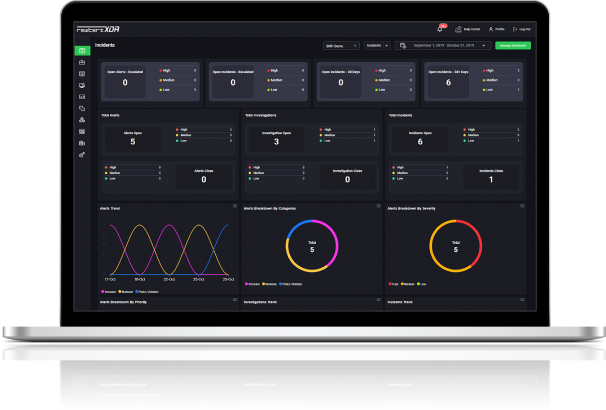

Rewterz Threat Advisory – Red Hat update for glibc
November 5, 2018
Rewterz Threat Advisory – Microsoft Edge Web Browser zero-day exploit about to unleash
November 6, 2018
Rewterz Threat Advisory – Red Hat update for glibc
November 5, 2018
Rewterz Threat Advisory – Microsoft Edge Web Browser zero-day exploit about to unleash
November 6, 2018Intel CPUs are vulnerable to a timing attack that may steal information decryption keys from other processes running in the same CPU core with SMT/hyper-threading enabled.
IMPACT: CRITICAL
PUBLISH DATE: 05-11-2018
OVERVIEW
This is a flaw in the Intel processor execution engine sharing on SMT (e.g. Hyper-Threading) architectures. It can result in leakage of secret data in applications such as OpenSSL that has secret dependent control flow at any granularity level. Utilizing this attack, researchers were able to steal the private decryption key from an OpenSSL thread running in the same core as their exploit.
ANALYSIS
In Intel processors, an attacker can sniff out sensitive protected data, like passwords and cryptographic keys, from other processes running in the same CPU core with simultaneous multi-threading (SMT) feature enabled.
It’s a side-channel vulnerability residing in Intel’s Hyper-Threading technology, the company’s implementation of Simultaneous MultiThreading (SMT). This performance feature works by splitting up each physical core of a processor into virtual cores, known as threads, allowing multiple computing threads to be executed at the same time.
The problem is, since SMT runs two threads in two independent processes alongside each other in the same physical core to boost performance, it is highly possible for one process to detect with much accuracy what the other is doing.
Therefore, if an attacker succeeds in running a malicious PortSmash process alongside a selected victim process on the same CPU core, the PortSmash code will be able to snoop on the operations performed by the other process by precisely measuring the time taken for each operation.
AFFECTED PRODUCTS
The PortSmash timing attack is confirmed to work on Intel’s Kaby Lake and Skylake processors currently, while other SMT architectures including AMD’s are highly suspected to be vulnerable with some modifications to their code.
MITIGATION
The recommended mitigation technique for the PortSmash vulnerability is to disable SMT/Hyper-Threading in the CPU chip’s BIOS until Intel releases security patches. OpenSSL users can upgrade to OpenSSL 1.1.1 (or >= 1.1.0i).
If you think you’re the victim of a cyber-attack, immediately send an email to soc@rewterz.com for a quick response.








